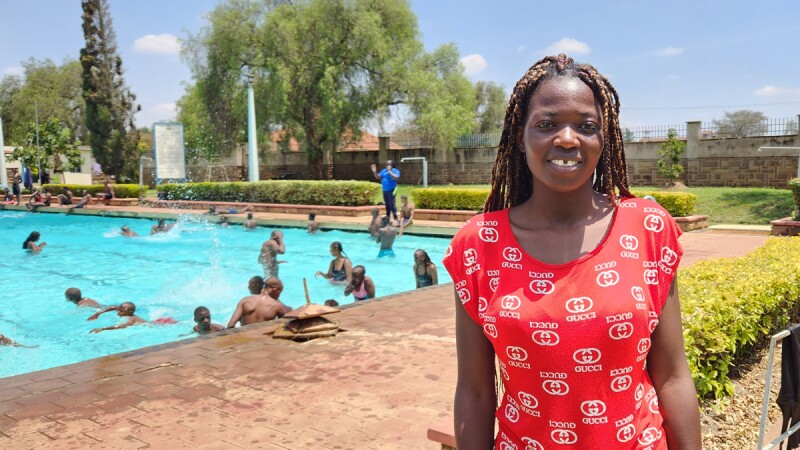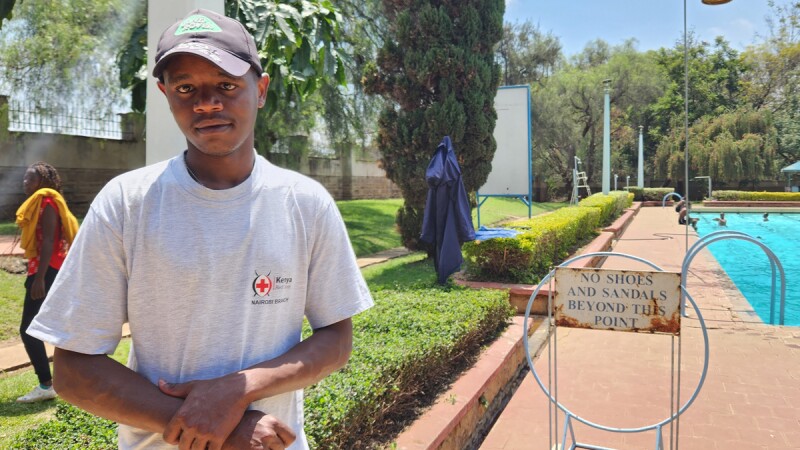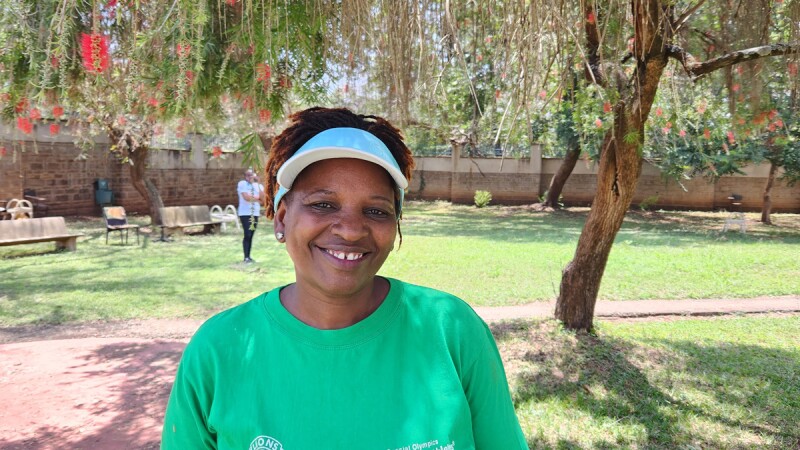
Although the COVID-19 pandemic is officially over, the effects, like the disease itself, continue to have a global impact. Catering to a high-risk population, Special Olympics local Programs were hit particularly hard. The Special Olympics Kenya club at Kenyatta University is just one example. Before the pandemic, the club had approximately 100 athletes and Unified partners (teammates without intellectual disabilities) training at the college facilities. Even two years after Kenya’s citizens were back to interacting in person and carrying on daily activities without restrictions, the club’s membership has only rebounded to 40 members.
Special Olympics Kenya Sports Manager, Vincent Mungai Njuguna, says a combination of factors has contributed to the 60% decrease in participation. “Many athletes and their families moved away during the pandemic and have not returned. For some others, the cost of taking public transportation during a recession makes traveling to practice too expensive.”

Rehab Njunguna has been coaching with the Special Olympics Kenyatta University Club for seven years. She is concerned about the low number of volunteer coaches. “We’ve had so many coaches not return that I ended up taking over the program. I hope that if we have more orientations here at Kenyatta University, we can get more people interested in becoming coaches.” Additionally, she believes that increasing the number of female coaches will attract more female athletes to the Program.
Special Olympics Kenya is not the only Program facing severely decreased athletes, staff and programming. In fact, the majority of Special Olympics local Programs around the world are still grappling with reduced membership. For example, the 2022 Special Olympics global Reach Report shows that the combined number of athletes and Unified partners was down 39% from their pre-COVID levels. The number of certified coaches decreased to 47% and competitions were still down 40%. And while the Special Olympics Africa Region was the only Special Olympics Region to post positive grown in the overall number of athletes and Unified partners at 1%, that upswing isn’t much and hasn’t reached Kenya.

Even for those athletes who have returned to training at Kenyatta University, the memory of isolation and the missed opportunities to develop in their sport and their leadership skills remain a sore spot. Francis Mutungu Munyaka, who participates in football (soccer) and cycling, tried his best to stay fit during the days of isolation. “During the COVID-19 lockdown, I really missed training with other people. I had to do exercises at home and would go running on my own.” Mungai Njunguna says Munyaka is the perfect example of an athlete who is ready to develop into an athlete leader, maybe even become a coach. Such plans had to be put on hold until it was safe for athletes to return to group activities and for Programs to be built back up.

For now, parents at the Kenyatta University location are trying their best to fill the coaching and staffing gaps. Margaret Gichuki, who’s daughter Precious is a swimmer and served as Miss Autism Kenya 2019, says that many of the parents do more than just drop off their children. “We are very busy helping to organize activities and encourage athletes. We do basic training along with the coaches so that if they are running late or can’t make it, the athletes can still have some level of training for the day.”
There is no easy fix. Every athlete and Program have their own set of challenges. It will continue to take creativity, patience and resilience, all things found in abundance in the Special Olympics movement, to build back to pre-pandemic participation rates.









